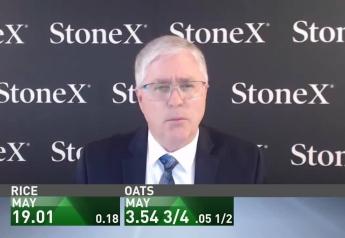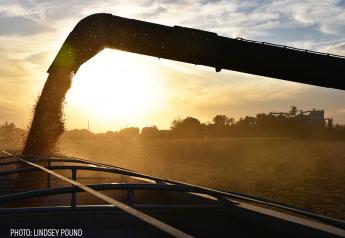Biden’s Top Trade Pick Vows to Stay Tough on China
Agday 02/26/21 - Tai Confirmation hearing
Congress got a clearer view of President Biden’s trade agenda this week as the Senate Finance Committee questioned Katherine Tai, Biden's nominee to serve as the United States Trade Representative.
Tai is no stranger to trade, especially when it come to the difficult relationship between the U.S. and China. Tai previously worked for the Office of the U-S Trade Representative from 2007 to 2014. During that time, she successfully prosecuted several cases on Chinese trade practices at the World Trade Organization (WTO).
During Tai’s opening statements on Thursday, she discussed the ongoing pursuit to enforce the U.S. Mexico Canada Agreement (USMCA), but also the stance the Biden Administration may take when it comes to addressing China.
“We must do the hard work and secure the necessary reforms that allow the world to come together and address common threats like climate change, the COVID pandemic and a global economic downturn,” Tai said in her opening statement. “That duty of leadership extends, of course, to addressing the challenges posed by China.”
Tai went on to point out she was America’s chief enforcer against China’s unfair trade practices; experience she will use if the Senate approves her nomination.
“I know firsthand how critically important it is that we have a strategic and coherent plan for holding China accountable to its promises and effectively competing with its model of state directed economics,” she continued to say in her opening remarks. “I know the opportunities and the limitations in our existing toolbox. And I know how important it is to build what the President has termed ‘a united front of U.S. allies.’ We must recommit to working relentlessly with others to promote and defend our shared values of freedom, democracy, truth and opportunity in a just society.”
Balancing Act
Tai says China is a unique trading partner, as the Communist country serves also as a competitor, a balancing act that means the U.S. will need to work with allies to hold China accountable.
“China is simultaneously a rival, a trade partner and an outsized player whose cooperation we also need to address certain global challenges,” she added. “We must remember how to walk, chew gum, and play chess at the same time. That means here at home we must prioritize resilience and make the investments in our people and our infrastructure to harness our potential, boost our competitiveness and build a more inclusive prosperity.”
Probing About Phase One Trade Deal
As the question and answer period progressed during the hearing, Sen. Charles Grassley (R-Iowa) pressed Tai about the Phase One agreement with China and possible changes.
“Our Department of Agriculture projected China would purchase $31 billion of U.S. farm exports this year, that's a little bit shorter than the $38 billion they were supposed to do,” said Grassley. “But that's still pretty positive news considering the virus. But the Phase One deal wasn't only about purchases. It was also intended to result in structural changes to China. Do you intend to push China on all structural changes?”
“Senator Grassley, I’m glad you asked this question,” said Tai. “The agreement that we have with China is the agreement that we have, and there are promises that China made that China needs to deliver on with respect to structural changes within China. I think that we would all be delighted to have those structural changes in China to have our economies be more compatible. I think it is absolutely worth exploring with China. But I also want to note that those are conversations and those are roads that have been well worn by US trade representatives before me. And so on this issue of the US China trade relationship, I would like to say that we need to be exploring all of our options.”
Tai looks to have bipartisanship support for the USTR role. In January, more than 100 groups signed a letter to the Senate Finance Committee asking its members to quickly confirm Katherine Tai as the next USTR. The committee still needs to vote on Tai's appointment. If approved, she will move on to the full Senate for a final confirmation vote.







